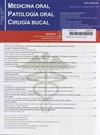Dysgeusia increases the risk for death and other side effects during antineoplastic systemic treatment for solid tumors: a cross-sectional study.
IF 2.1
3区 医学
引用次数: 0
Abstract
BACKGROUND Chemotherapy (QT) is a systemic treatment using a combination of antineoplastic drugs, orally or intravenously, that inhibit tumor growth and fast-growing normal cells. Due to its nonspecificity, chemotherapy can cause a series of adverse effects, such as altered taste (dysgeusia), associated with malnutrition and, consequently, other adverse effects in the gastrointestinal tract and increased mortality risk. This study aimed to evaluate the influence of dysgeusia on the incidence of other adverse effects and overall survival during antineoplastic chemotherapy (chemotherapy). MATERIAL AND METHODS An observational, retrospective, cross-sectional study was conducted using data from the Electronic Health Record system of the Cancer Institute of Ceará over two years. Before the CT session, the multi-professional team evaluated the patient for the presence and severity of adverse effects (AE), using scores from the CTCAE v5.0 scale. Dysgeusia scores were collected and associated with clinical pathological data, with other adverse effects (nausea, vomiting, diarrhea, oral mucositis, anorexia, constipation), and with overall survival. Chi-square and Mantel-Cox log-rank tests were used. RESULTS Of 5744 patients evaluated, dysgeusia presented a frequency of 50.6%, being directly associated with female gender (p=0.001), overweight (p=0.022), high tumor stages (p=0.009), a combination of adjuvant and neoadjuvant (p=0.010) and four-year survival (p=0.030). Dysgeusia frequency was directly associated with diarrhea (p<0.001), anorexia (p<0.001), oral mucositis (p<0.001), nausea (p<0.001), constipation (p<0.001) and vomiting (p<0.001), and inversely associated with fatigue (p=0.035). CONCLUSIONS Dysgeusia during CT increases the risk of other adverse effects and negatively impacts prognosis.消化不良会增加实体瘤抗肿瘤系统治疗期间的死亡风险和其他副作用:一项横断面研究。
背景化疗(QT)是一种全身性治疗方法,通过口服或静脉注射抗肿瘤药物,抑制肿瘤生长和快速生长的正常细胞。由于化疗的非特异性,化疗会引起一系列不良反应,如味觉改变(消化不良),并伴有营养不良,进而对胃肠道造成其他不良影响,增加死亡风险。本研究旨在评估消化不良对抗肿瘤化疗(化疗)期间其他不良反应发生率和总生存率的影响。材料与方法利用塞阿拉州癌症研究所电子健康记录系统两年来的数据,进行了一项观察性、回顾性、横断面研究。在进行 CT 治疗前,多专业团队采用 CTCAE v5.0 评分标准对患者是否存在不良反应 (AE) 及其严重程度进行了评估。收集了消化不良评分,并将其与临床病理数据、其他不良反应(恶心、呕吐、腹泻、口腔粘膜炎、厌食、便秘)以及总生存率联系起来。结果 在5744名接受评估的患者中,出现消化不良的比例为50.6%,与女性性别(p=0.001)、超重(p=0.022)、肿瘤分期高(p=0.009)、辅助治疗和新辅助治疗相结合(p=0.010)以及四年生存率(p=0.030)直接相关。腹泻(p<0.001)、厌食(p<0.001)、口腔粘膜炎(p<0.001)、恶心(p<0.001)、便秘(p<0.001)和呕吐(p<0.001)与腹泻频率直接相关,而与疲劳成反比(p=0.035)。
本文章由计算机程序翻译,如有差异,请以英文原文为准。
求助全文
约1分钟内获得全文
求助全文
来源期刊

Medicina oral, patologia oral y cirugia bucal
Medicine-Surgery
CiteScore
4.50
自引率
0.00%
发文量
52
期刊介绍:
1. Oral Medicine and Pathology:
Clinicopathological as well as medical or surgical management aspects of
diseases affecting oral mucosa, salivary glands, maxillary bones, as well as
orofacial neurological disorders, and systemic conditions with an impact on
the oral cavity.
2. Oral Surgery:
Surgical management aspects of diseases affecting oral mucosa, salivary glands,
maxillary bones, teeth, implants, oral surgical procedures. Surgical management
of diseases affecting head and neck areas.
3. Medically compromised patients in Dentistry:
Articles discussing medical problems in Odontology will also be included, with
a special focus on the clinico-odontological management of medically compromised patients, and considerations regarding high-risk or disabled patients.
4. Implantology
5. Periodontology
 求助内容:
求助内容: 应助结果提醒方式:
应助结果提醒方式:


